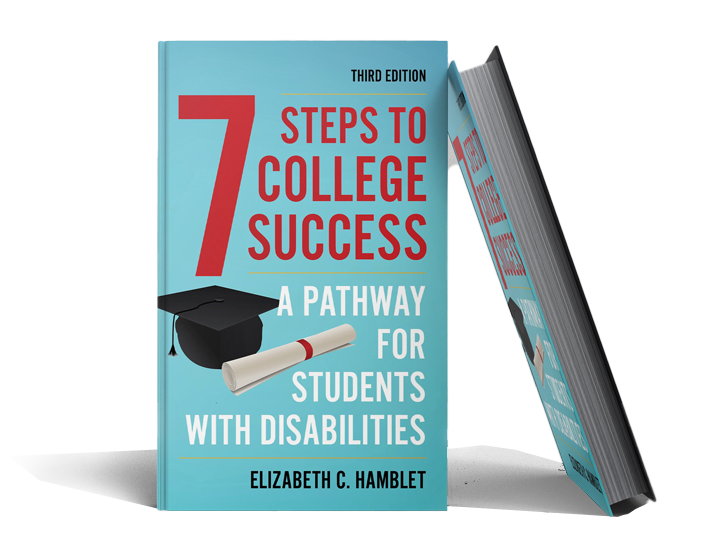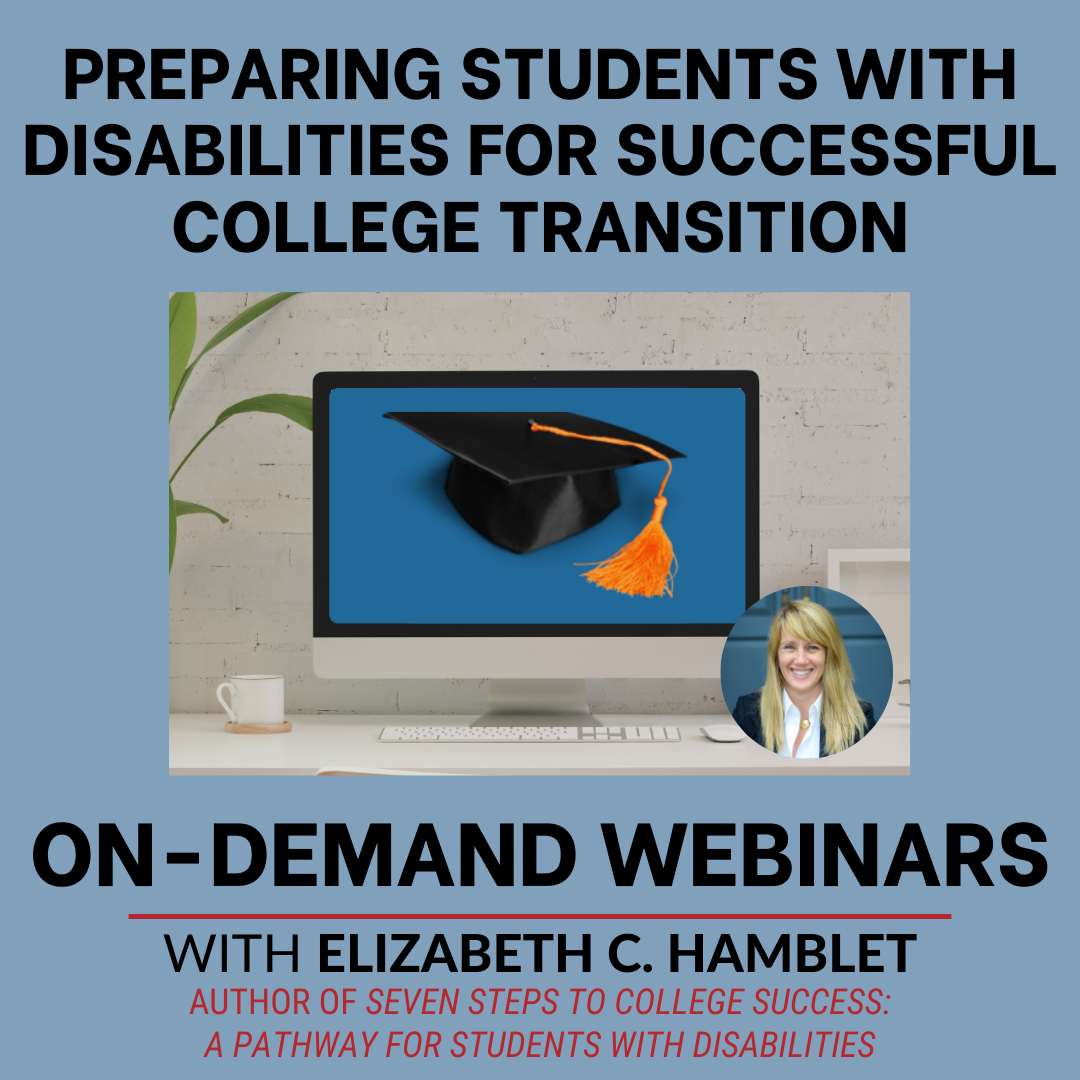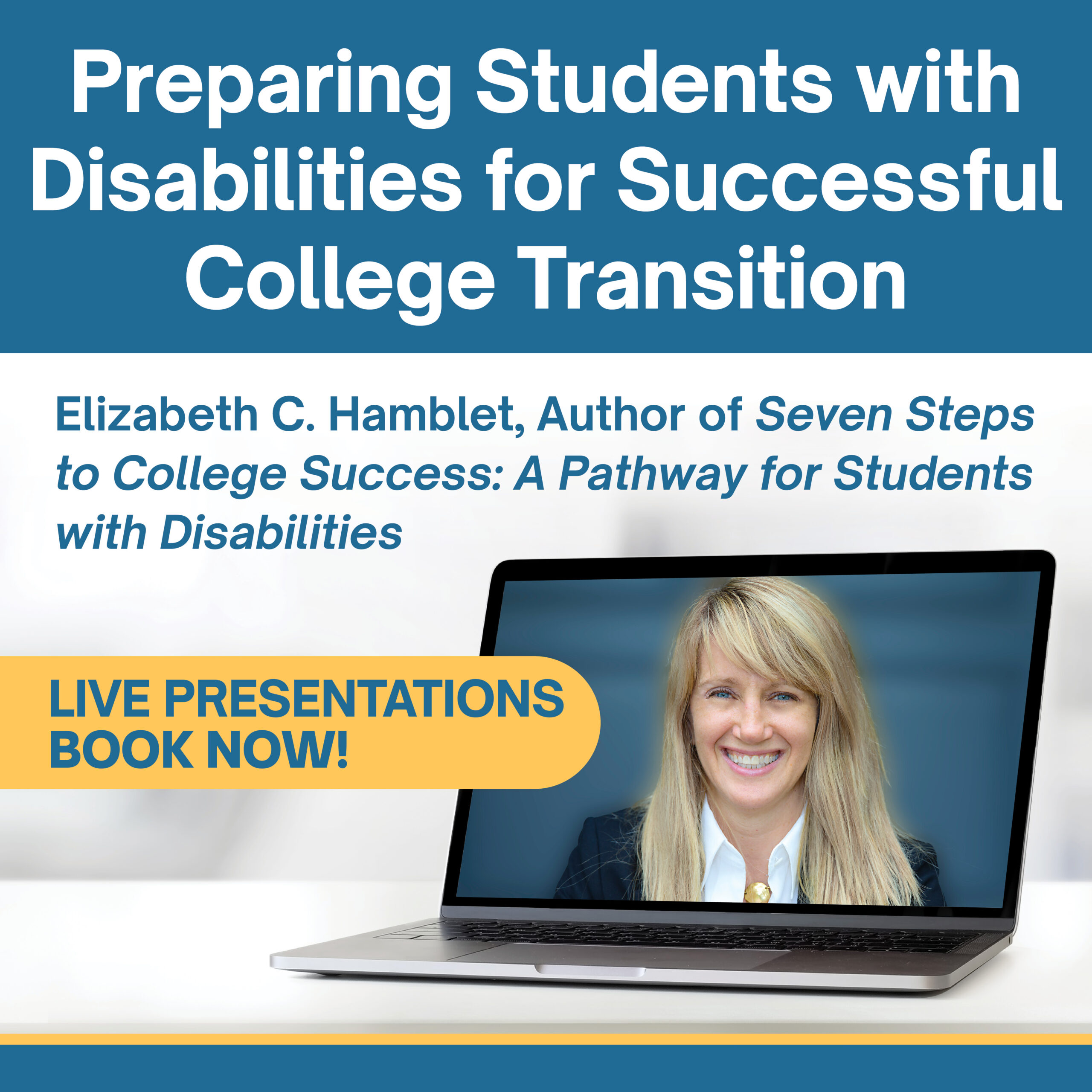Introduction
Mansfield Hall is a specialized college support program that helps students develop the “soft skills” and executive functioning skills that are rightfully gaining increasing attention in the literature on transition. I asked Jake Weld, Vice President of the program, to write a guest post for my blog. I’m sure readers will find his ideas important and useful.
Remember – college acceptance doesn’t equal college readiness
You’ve gotten accepted to college and enrolled – congratulations! Take a moment and enjoy the glory.
Once you’re done celebrating, it’s time to prepare for one of the biggest transitions of your life. Right now is when you should start thinking about it.
It’s important to realize that being accepted to college is not the same thing as doing well in college, and your acceptance at your school of choice does not guarantee your future success. You do not want to just survive freshman year – you want to thrive!
The admissions departments of schools where you were accepted evaluated your academic skills and test scores and found you likely to have a chance to succeed academically in their environment. But those schools had no way of evaluating other important skills associated with college success – skills that go beyond your proven academic “chops.”
These skills affect how well you manage your overall life, with school being only one important segment of that. Social skills, independent and healthy living skills, and executive functioning skills are just as important as your academic skills in helping you to achieve success at college.
College is going to be a challenge, and that’s okay – that is part of why it is so fun and exciting. But how you meet that challenge will define your experience.
In many years of supporting students making the transition to college, I have identified the three self-advocacy which I believe are the most important, the most critical, and the most likely to lead to college success. Ask yourself if you have these skills, or if you need to work on developing them.
#1 – Accurately identify when you are struggling
As you transition from high school to college, you will notice that the learning environment shifts. In high school, your teachers are expected both to know the material and to use a variety of strategies to reach different kinds of students.
In college, professors are generally only required to have mastery of their topic and may not have a wide range of teaching skills beyond lecturing. Classes may not include discussions where you can ask questions or try to answer some of the professor’s so you can have a sense of whether you’re really processing the material. This won’t be true for every professor, but you should prepare for this possibility and have a strategy manage the change in the instructional approach and be prepared to ask for help if you are struggling.
Think about yourself right now:
- Can you decide when you need assistance – not just in school, but in your social life and your independent living skills?
- Can you recognize when you are not physically or mentally healthy?
And even more importantly, can you do these things…
– Accurately (can you be honest with yourself?).
– Independently (because nobody else will be there to do it for you).
– Early (because it has to be in enough time to get the help you need).
#2 – Access the supports and services that are available
If you are successful at identifying when you need some help, the next step is being able to search for that help. Do you currently seek assistance at school by yourself, or do parents and teachers make requests for you (without asking you if you need it)? And do you ask for help in other parts of your life?
Here are some scenarios to think about where you would have to self-advocate:
Are you confident that you would go to meet with a professor if you didn’t understand something that had been discussed in class or if you didn’t do well on an exam?
Do you think you could figure out where the Writing Center is located and make an appointment?
Would you take the effort to go to the Health Center when you’ve come down with cold that won’t go away – before it becomes pneumonia?
Would you talk to a dean or a residential advisor if you were struggling with your roommate?
College campuses offer lots of support services, and their offices are filled with professionals who are there to help you navigate the transition to college successfully. But just as the academic model changes from student-centered to content-centered, the other supports also change from adult-initiated to student-initiated, so you will be the one to start the conversation in order to get the help you need.
#3 – Effectively utilize the sources of help that you access
Starting the process of getting assistance is crucial, but then you need to be able to follow through effectively in order to benefit from the help.
If you think that you could do what is described in the scenarios above in order to get help, would you also:
- Prepare a list of questions or homework items you couldn’t complete to bring to your professor’s office hours, and go each week to make sure your next exam grade is better?
- Prepare a list of ideas or rough draft before your writing center appointment? (Many require students to come in with a certain amount of work already done.)
- Get to the pharmacy to pick up your prescription from Health Services, and would you take it as directed?
- Be able to work effectively with a dean to solve a roommate challenge?
Asking for assistance at college will start a helpful process, but it does not mean that things get will be immediately fixed. There will still be work to do – but you will be on the path to success!
Time to start practicing now
It is never too early to start practicing these skills and proving to yourself that you are ready for the leap to college, including:
- Waking up on your own
- Doing your own laundry
- Asking your teachers for help before they tell you that you need it
Honestly evaluate your progress in a variety of areas of your life, set some goals, and see how you do in achieving them. (Get some feedback from parents/guardians and teachers to make sure you’ve got an accurate sense of your progress.)
You have spent a lot of time working on math and reading and writing, but at college, there is more work ahead. If you can master these three help-seeking skills, though, you will be successful – no matter the challenge!
Jake Weld, M. Ed. holds a masters degree in education and has over twenty years of experience in both secondary and post-secondary education, always with an emphasis on supporting diverse learners. Learn more about Mansfield Hall at https://mansfieldhall.org/.




